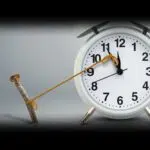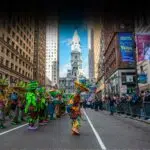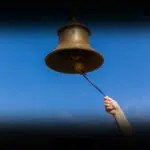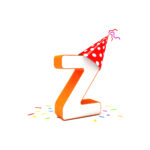Copyright Law Day, celebrated every January 1, is set aside for all creatives to appreciate the role of copyright law in ensuring legal use of their creations and encourage people to support and uphold copyright law. Did you know the first copyright statute was enacted over 311 years ago by the British parliament? Copyright law is a set of rights automatically vested on someone who creates an original work of authorship. These rights include reproduction, derivative works, distribution, public performance and display, and digital distribution. Copyright covers all literary works, software, movies, and songs. Copyrights are exclusive to the creator, preventing other people from using their work without permission.
History of Copyright Law Day
While the first copyright statute was enacted in Britain in the 18th century, the earliest-recorded case law on the right to copy was in ancient Ireland. A case arose in 6th century Ireland when there was a dispute about the ownership of the Cathach, one of the oldest Irish writings. In settling the case, King Diarmait Mac Cerbaill said, “To every cow belongs her calf, therefore to every book belongs its copy.” This ruling eventually led to the Battle of Cúl Dreimhne.
Ancient Roman, in all its glory and magnificence, didn’t have copyright law. That was because there wasn’t any need. Books, which were expensive to buy and maintain, were copied by literate slaves. That means anyone who tries to copy someone else’s work would have to spend much money as a professional publisher. However, there was no protection for the original authors, so publishers exploited them.
With the introduction of the printing press in the 1400s and 1500s, government authorities saw an increasing need to control book publications. The English government first developed a Licensing Act in the 16th century. This Act conferred the Stationers’ Company — an organization of English printers — the power to require all lawfully printed books to be entered into its register. When the Act came to an end in 1695, the English Parliament chose not to renew it.
In 1710, the English parliament enacted the Statute of Anne, the first Copyright Act. This statute granted publishers legal protection of 14 years on any book they publish, including 21 years of protection for any book already in print. This statute, however, did not apply in America, even though it was a British colony. But in 1787, proposals were submitted by both James Madison of Virginia and Charles Cotesworth Pinckney of South Carolina to Congress for limited copyright and patents. That eventually led to the Copyright Clause in the United States Constitution. Copyright has evolved ever since with each successive court rulings and senate modification.
Copyright Law Day timeline
The English parliament enacts the Licensing Act, giving an organization of English publishers a near-monopoly on publishing in England.
After choosing to not renew the Licensing Act, the English parliament enacts the Statute of Anne, the first-ever copyright statute.
After two U.S. senators submitted proposals, Congress introduces the copyright clause into the U.S. constitution
The World Intellectual Property Organization Convention is signed in Stockholm and comes into force in 1970, replacing the bureaus established by the Berne Convention and Paris Convention.
Copyright Law Day FAQs
What are the types of copyright law?
The types of copyright include public performance licenses, public performing rights, mechanical licenses, reproduction rights, digital performance rights in sound recordings, and synchronization licenses.
Which works are protected by copyright law?
Copyright law protects literary works, musical works, dramatic works, artistic works, computer software, architecture, sound recordings, motion pictures, other audiovisual works, choreographic works, and pictorial, graphic, and sculptural works.
What cannot be protected by copyright?
Copyright does not protect slogans, listings of ingredients or contents, short phrases, individual words, variations of typographic ornamentation, lettering, or coloring.
How To Observe Copyright Law Day
Commit to following copyright laws
Creators and publishers alike lose millions of dollars yearly to piracy and copyright infringement. You can help lessen their loss by buying original products. That means you need to commit to not downloading or buying pirated copies of any product, including films, software, music, or C.D.s.
Copyright your work
Have you ever written a literary piece, designed a game, or created a movie or a piece of music? Even though you don’t necessarily need to copyright your work, doing it will put a stamp on them that you’re the owner. And anyone interested in your work would have to ask for your permission before using it. Sometimes, that can bring you money.
Encourage people to buy or use original works
Another way you can help creators and publishers reduce their losses is by encouraging your friends, family, and network to buy and use only original works. Creators and publishers invest effort, time, and money into creating those products. Help them ensure they profit from it.
5 Interesting Facts About Copyright
A work is copyrighted once it’s fixed
In the United States, copyright protection automatically exists for your work once it’s placed in a tangible format.
You could be sued for using online images
Using copyrighted images could land you in a lawsuit, even if you attribute the creators or didn’t make money from them.
Copyright doesn’t protect ideas, facts, or titles
You can freely use someone else’s ideas or creation title without fear of copyright infringement.
Students have copyright over their schoolwork
Schools are not allowed to reproduce or sell their fellow students’ research, assignments, or schoolwork without explicit permission.
Fair use does not protect you
Fair Use is highly complicated — you can’t be sure when your use of a work falls under fair use, or whether it's copyright infringement.
Why Copyright Law Day is Important
Copyright prevents misuse of people’s work
When you copyright your work, obtain both national and international protection. That prevents people in any part of the world from using your work for any purpose without your permission.
Copyright makes it possible to earn from your creative work
Copyright confers on you the right to reproduce, distribute, and display your works. You can choose to license any of these rights to a publisher and make a profit from them.
Copyright encourages creativity
With copyright ensuring people obtain benefits from their creative works, creators always have the incentives to produce something new.
Copyright Law Day dates
| Year | Date | Day |
|---|---|---|
| 2025 | January 1 | Wednesday |
| 2026 | January 1 | Thursday |
| 2027 | January 1 | Friday |
| 2028 | January 1 | Saturday |
| 2029 | January 1 | Monday |



















































































































